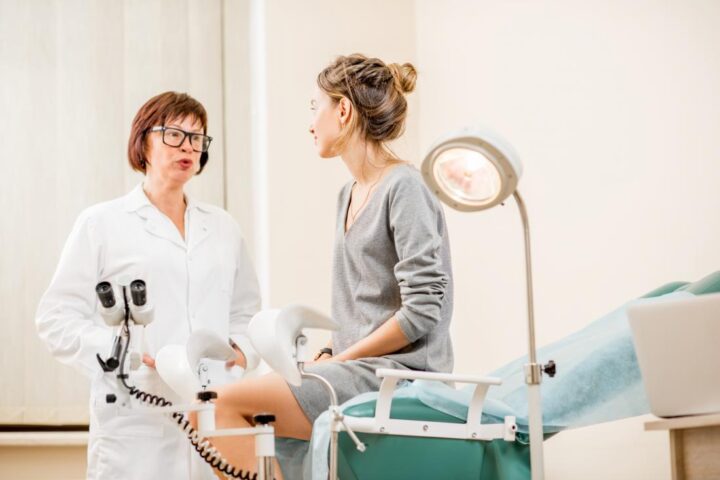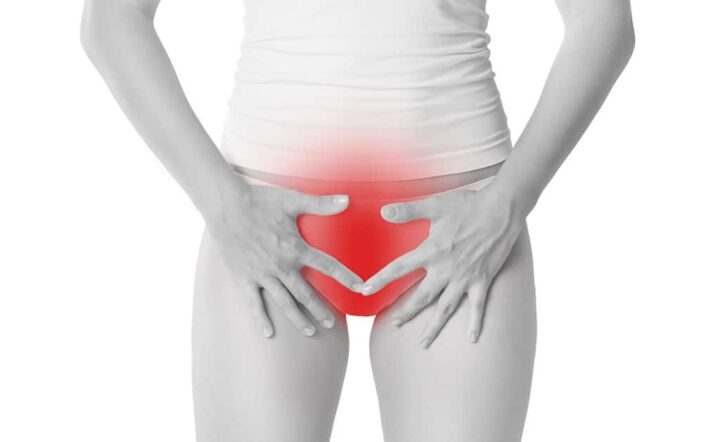3 Important things you should always discuss on your Women’s Health Clinic Appointment

As a rule of thumb, it is required that you have your gynaecological exams at least once each year. Interestingly, it is also advisable that you start your women’s health clinic appointments very early—when you’re 13 to 15 years.
When it comes to your sexual or reproductive health, it is usually not easy to determine the red flags for a potential health complication on your own outright.
For most women, though, these visits feel awkward. Here’s what your women’s health specialist wants you to understand though; they won’t judge you in any way when you visit the women’s clinic.
What should I discuss with my Gynaecologist?

To begin, you should always focus on finding a women’s health clinic with good track record. That will ensure that you’re comfortable opening up with your gynaecologist on sensitive topics, and get more from your routine appointments. With that being said, here are the important topics to discuss with your gynaecologist on any visit.
Vaginal Odour
Vaginal odour can be a massive blow to your self-esteem. Even worse, it can be an uncomfortable topic to talk about with your friends.
If you experience a change of normal smell from your vagina like a fishy or foul smell that doesn’t seem to go away, it is recommendable that you talk to your gynaecologist about it. Note that, even though sometimes it is normal having an odour, a sudden change in the smell is a red flag that should not be assumed.
In most cases, sudden changes in smell are due to vaginal infections due to STDs like Trichomoniasis or bacterial overgrowth. When you open up on such an issue with your doctor, they may recommend a gynaecological exam to help you determine the cause. They may also recommend medications for example antibiotics if it was a case of a disease like Trichomoniasis.

Painful and Heavy Periods
The chain of things that happen during your periods may be unpleasant. However, if the cramping and bleeding that comes with your menstrual cycle become severe, you could be dealing with a serious medical condition that will need an expert’s intervention.
Usually, severely painful cramps are due to uterine fibroids or endometriosis. You should talk up such issues with your doctor to find a better solution to manage the conditions.
Sexual Discomfort
When you book an appointment at a women’s health clinic, they will most possibly ask you about how many partners you’ve had over a given period or after your latest assessment. They may also ask how old you were when you first had sex and if you have ever had a sexually transmitted disease.
Check more information here: https://www.pkwomensclinic.com/
They may also ask about the way you commonly have sex, for example oral, vaginal or anal sex. The doctors won’t judge you from your sexual history.
Instead, they ask these questions to determine the STDs you could be exposed to, and to determine the best ways to test for and treat them. Knowing your sexual history also makes it easier to understand the potential risks that past STDs may pose on you.
Some of the concerns they may help you address under sexual discomfort include;
Pain during sexual intercourse. Pain during sex isn’t natural. If you’ve tried a few positions and still can’t feel comfortable, be sure to bring up the issue on your women’s health clinic appointment. They will help you determine possible issues and work out ways of solving them.
Vaginal dryness

Even though vaginal dryness among women is pretty common, it can be a cause of concern, especially if you’re a young woman. For example, if you start to experience vaginal dryness during sex after using birth control pills, your doctor may recommend that you change the contraception. Alternatively, if you’re not on any birth control pills, they may recommend more foreplay and vaginal arousal time. Finally, if you’re in a postmenopausal phase, they may also prescribe vaginal oestrogen to boost your oestrogen levels.
Urinary or Faecal Incontinence
Urinary or faecal incontinence can be so frustrating. When not managed on time, it can wear you down psychologically degrade your quality of life to a massive scale. Urinary and faecal incontinence are caused by conditions that affect the nerves and muscles, controlling your bladder and bowel movements. For most women, these symptoms commonly appear after giving birth usually after a vaginal delivery that required a vacuum or forceps or if they gave birth to a large baby. These symptoms may worsen when you enter menopause. However, they can be reversed through surgical procedures or medications. If you experience faecal or urinary leakage, be sure to book an appointment at a women’s health clinic and discuss the issue with your gynaecologist. They will help you come up with a proper treatment protocol or recommend that you visit a pelvic floor disorder specialist for specialized help.
Swelling Growths
A growth around your labia or in your vagina can either be a cut from shaving, ingrown hair, a pimple or something more concerning like warts or herpes. To ensure peace of mind, it’s best to consult a gynaecologist whenever you notice any bumps or growths in your private area.
Low Libido

A low libido might appear more as a personal ramification, but it’s important to raise this matter up with your gynaecologist to find out the cause of it. Libido may be affected by medications you’re on, a sign of an underlying medical condition or a side effect of another condition.
For some women, low libido may simply be affected by things like stress, their environment and work. In such circumstances, your gynaecologist can make recommendations to help increase your libido naturally or refer you to an appropriate counsellor.
Make an Appointment with a Reputed Women’s Health Clinic in Singapore
A gynecological appointment is only fruitful if it helps you detect risks and learn how to stay safe or treat certain conditions. Drop us a line today for a candid and confidential consultation on your wellness exam.
